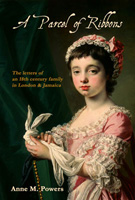I have written before about the Family Search site of the Church of Jesus Christ of Latter-Day Saints, otherwise known as the Mormons, whose wonderful website was one of the very first to make indexed parish records available through the internet.
The good news for anyone researching ancestors in Jamaica is that there is now a new batch of indexed records online which link to the images of the early parish registers. You can find them here, or by selecting Caribbean, Central and South America from the home page and then choosing Jamaica from the list on the left of your screen. You can still opt to browse the images by parish without going through the computer indexes if you prefer. There are handwritten indexes you can use but be aware they are not fully in alphabetical order and are listed in date blocks. Dissenters’ marriage records from 1838-78 are now included.
In addition to the new indexes now provided for the transcripts of the parish registers, there are also updates to the Civil Registration records for Trelawny, making a total of over 2 million Jamaican records available for searching, dating back to 1664 for some parishes.
There are some very particular problems searching for Jamaican ancestors, compared with say those recorded in English or Scottish parish registers. Climate, hurricane, earthquake and sheer carelessness often resulted in damage to or destruction of records. The microfilms now indexed were taken from transcripts of the parish registers and so copying errors have sometimes crept in, some microfilm images proved too pale to be read and so could not be indexed.
Before the arrival of standard forms for recording births, marriages and burials different parish priests followed different conventions (or none!) for recording these events. Remember that spelling of names varied a lot and you may need to be creative when searching.
Where the person you are searching for was white and property owning there is a reasonable chance there is a fairly full record of a baptism or marriage. For most early burials only a name is given – an age, relationship or cause of death is a real bonus but is rare before the late 18th century.
Sadly for most slaves nothing was recorded except perhaps in plantation records where they were treated as property or ‘stock’ in the same way as cattle or mules. It is worth remembering that shocking as this is, a wife was also legally her husband’s property and she had no rights over her own children.
Even with the aid of the new indexes it can be difficult to locate an illegitimate Jamaican ancestor. Where the child was acknowledged by the father it may have been recorded with the names of both parents – the choice of surname for the child might be of either parent and the vicar may have recorded that it was illegitimate and may have included whether it was mulatto or quadroon. If only the mother’s name is given it is reasonable to assume the parents were unmarried, as also where no parents are named.
As far as I can tell the new indexes do not yet cover burials or marriages – they will be really useful when they do particularly for locating the marriage of a woman, since the original hand written indexes were by man’s surname only. A quick check for some records that I know exist also suggests that baptisms have not yet been completed for all parishes.
However, the computerisation of indexes makes a huge difference to the speed of searching for records and the remaining entries will I am sure be added soon.
Anyone can volunteer to help with indexing records, so it may be of interest to describe how these indexes are created.
You can find out about it here, register as an indexer and download a small application to your computer. You can select a level of difficulty according to your level of experience and choose your language as well as selecting your preferred option from the current list of available records, some of which will be listed in red as of highest priority for completion. Census records are being indexed as well as parish records, civil registrations and other lists include clan genealogies, pilgrimage records, American Civil War Service records and many more.
When you have downloaded your chosen task you will be presented with a form according to the type of record you are indexing, and instructions covering the fields being indexed. You simply type in the details from each record as it appears (odd spelling included!) – name, date of birth, baptism, marriage or burial and so on. There is help with difficult handwriting, a Facebook Group, and online discussion forums, but if a batch is too difficult for you, the image is unclear or you simply don’t have time to finish it you can pass it back for someone else to complete.
Once you have completed your group of records the application will take you through a checking process. Another person will index the same group of records and then the two sets of results are sent to a moderator for checking, adjudicating on difficult handwriting and so on. The overall result is a highly accurate set of records.
If you have some time to spare and are interested I can thoroughly recommend indexing. You can do as few or as many as you like and there is huge satisfaction in knowing that you may have helped someone find their long lost family history.

